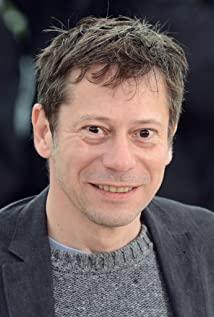The practice of previous Venice Film Festivals is basically to put important films in the first few days. On the one hand, it is convenient for American journalists to catch up on the field. On the other hand, it is always better than Cannes. Appears to be more stylish.
But I have to say, Venice this year is still very lively. After the "Marriage Story" starring Widow Sister and the driver exploded, two more movies exploded yesterday. One is DC's new work "Joker" starring Joaquin Phoenix, which is considered to be "the best movie since "The Dark Knight". Bold, most serious comic book movie."
The other is the new work "I accuse" (J'accuse) directed by Polanski that we are going to talk about today. That's right, this master director, who naturally brings his own hot spots, also joined the competition for this year's Golden Lion Award. The long-lost Polanski, the last time he entered the top three in Europe, was "Venus in Furs" six years ago.
Polanski, who reappeared on the international film stage with his new work, once again became a "man of the moment". In addition to being linked to his film work, his name appears more on the gossip news that has nothing to do with the film attached to the major media. From the Holocaust in his childhood to the death of his mother in a concentration camp, from graduation from school to fame, from the murder of his wife and children by a cult, to being accused of sexually assaulting a 13-year-old daughter. In the eyes of the world, Polanski's life is far more exciting than his films.
Especially the "Me Too" movement that is still in full swing this year, I can't wait to find the "bad element" Polanski from Europe and criticize it again, even if the former party Samantha Germer voluntarily withdraws the case and clarifies for Polanski" There was a voluntary element back then," which did not at all ease the criticism of Polanski by public opinion from all walks of life. Because of this, Polanski, the director, was unable to participate in the premiere of the new work "I Complain" in Venice (Italy and the United States have an extradition treaty).
But for the author, Polanski's films will always be on the list of things to see in my lifetime. From the black psychological thrillers "Cold Blood", "The Tenant" and "Rosemary's Baby", which played black psychological thrillers in the early years, to "Oliver Twist", "Tess" and "Macbeth" adapted from classic historical dramas, and "Oliver Twist", "Tess" and "Macbeth", where lust reflects human nature. "Bitter Moon" and "Venus in Furs", and then to the serious film "The Pianist". Polanski has created many classics with his excellent script structure ability and spatial scheduling. No matter what the world thinks of him, as a filmmaker, he still stands among the masters with his superb craftsmanship.
Note: The following content involves plot discussions, please pay attention.
1. The reappearance of the stroke of magic
The new work "I accuse" is adapted from the 2013 novel of the same name by British author Robert Harris, who is also the co-writer of the film. As a compulsory content of general education in Western history, most people know that the "Dreyfus Affair" was the beginning of the anti-Semitism of the French right-wing forces at the end of the 19th century.
Dreyfus, a young Jewish captain, was charged with treason in a French government intelligence investigation. He was fired for leaking information to the German military attache in Paris and sent to Devil's Island to serve his sentence. In subsequent investigations, even if it was found that Dreyfus was not a spy, officials at all levels refused to admit their mistakes due to the influence of far-right anti-Semitic forces in France at this time.
As more and more truths behind the "Dreyfus Affair" were revealed, French society split into two camps, "anti-Dreyfus" and "pro-Dreyfus", and almost led to a civil war. It was not until 1906, due to social pressure, that the French government allowed the court to revoke the judgment, allowing Dreyfus to be pardoned and his reputation restored.
As a definitive historical event, there is almost no suspense in itself. For Polanski, who is good at using dramatic conflict to structure texts, the lack of suspense is also a problem when screenplays adapt historical events. In the new film "I Complain", Polanski did not choose a vision closer to the public's aesthetics to cater to the mainstream G-spot of the so-called "maintaining justice and fairness".
On the contrary, rather than simply retelling history or cheaply condemning violence, Polanski takes a more subtle angle to deconstruct the movement itself, because in his view, the origin and process of violent results are more worthy of thought. In other words, Polanski is leading the audience to think with answers in this new film.
Although the film uses the "Dreyfus Incident" as the background, the script bypasses the character of Dreyfus from beginning to end, and is very clever to expose the key figure of the "Dreyfus Incident" - George Picard main point of view. Picard was involved in the initial trial of Dreyfus, but was also the one who helped to clear his name. The film opens with an anti-Semitic trial, which not only brings out the mainstream tone of the society at that time, but also provides a basis for Picard's original role setting.
Polanski presents the Ukiyo-e of Paris at the end of the 19th century with almost the rigor of re-enacting history. After Picard's promotion, the intelligence department office, based on the operating system of artificial intelligence, conducts back-and-forth text comparison work in the oppressive and airtight office. In an accidental comparison, a handwriting loophole in the key evidence in the Dreyfus case was discovered.
Polanski spends almost half of his space on the process of Picard's investigation for the Dreyfus case, from the beginning of questioning and solving due to arrogance, to the later discovery of the tricky evidence. As part of the institutional product, Picard also experiences self-conscious doubt and uncertainty.
The main scenes in the second half of the film are basically focused on the meeting back and forth. The secret conversation in the dust of the room, the silent surveillance in the apartment, and the anger of the crowded courthouse, even Zola wrote the long and eloquent letter titled "I accuse." The quality of the film is truly mesmerizing.
During the whole process, Polanski rarely did any exaggerated dramatic ups and downs, but maintained the most realistic presentation of history. Even a small scene and a small character were reproduced as much as possible according to the historical reality. , like a display, showing the audience one event after another.
He tried his best to achieve maximum restraint and calmness in the film, avoiding dramatic performances, and in the scenes with a lot of flashbacks or interludes, he insisted not to use personal emotions to hinder judgment in Picard's tone. If the first twenty minutes are pedantic research in pursuit of historical precision, the second half is undoubtedly highly focused on rigorous narrative.
The story text has almost abandoned the previous narrative modes with strong dramatic conflicts such as "Chinatown" or "Rosemary's Baby", and instead buried the main point in the contrast between Picard and the rigid and lazy characters in other systems. In the author's opinion, if the purpose of the film is to bring out Picard's integrity, then the French title "I accuse" insisted by Polanski is actually meaningless; the lengthy and repeated verification process of the film does not necessarily mean How much practicality can be provided to achieve character arcs. So back to the title of the film "I Accused", let's see, what exactly is Polanski trying to accuse in the new film?
2. Polanski's three-tiered indictment
For creators, the most superficial and most basic accusation is, of course, the anti-Semitism that has been surging in society. Polanski has also been frank about this in previous interviews. His childhood memories of Nazis, anti-Semites, and concentration camps were so deep that he still couldn’t get rid of the fear in his bones when he became a director. The oppressive, grotesque sense of space for which his films are celebrated, and the intense personal pessimism of historical dramas are largely a continuation of childhood fears.
The ridicule and contempt for Jews at the beginning of the film "I Complain", as well as the anti-Semitic waves that appear from time to time in the film, more or less come from Polanski's memory deep in his mind. In contrast to natural light, the darkness in the shadows appears deeper. For him, Dreyfus was convicted of treason, not because he was suspected of collaborating with the enemy, but because he was born Jewish.
The second level of accusation can obviously be extracted from the film. Film is the art of the director, and Polanski inevitably incorporates his personal elements into the creative process. He once said to the French writer Pascal Bruckner: "In this story I sometimes find certain moments that are déjà vu. There can be seen in it the same arbitrary 'verdict', denying the facts, condemning what I did not do. Great Most of the people who accuse me don't know me and know nothing about this case. I must admit that I am very familiar with how the persecution of individual citizens works in the film, and I can say that reality has inspired me."
For Polanski, his greatest wish may be that people can let go of controversy and separate it from art; but in reality, this is rarely the case. For example, before the opening of the film festival, the chairman of the jury of the Venice main competition unit, female director Lucezia Martell once stated: "I can't separate people from his works, he (referring to Roman Polanski) ) at the Venice Film Festival, for me, it is very uncomfortable. I represent a lot of women, and I don’t want to give him a standing ovation.” Although the subsequent defense was a translation error, the meaning has been fully expressed.
But for Polanski, the deepest indictment has to go back to the essence of himself and the Redforce case. The cause of the whole Dreyfus affair was anti-Semitic mentality, but going back to Zola's eloquent 1898 essay "I accuse", when Picard put the evidence in the hands of different officers again and again, did they Are they all fools? Do not! They all saw very clearly. Let's see how Zola complained:
How can you expect another military tribunal to overturn the original sentence? In terms of class relations, it is impossible. In his statement General Pius had paved the way for the judges to obey him in hearing cases as they would obey a commander in battle, without thinking. The opinion that influenced their verdict was: "Dreyfus has been convicted of treason by a court-martial, so he is guilty, and our court-martial cannot declare him innocent. Now, we know that if Esterhazy is admitted, we will That's tantamount to saying Dreyfus is not guilty... As I just stated to you, the Dreyfus incident was an Army incident: an officer in the staff was denounced by a colleague and sentenced under pressure from the supervisor. I repeat, he If the grievance is settled, all the officers of the staff must plead guilty. - Emile Zola, "I accuse"
In analyzing the origins of totalitarianism, Hannah Arendt, a well-known Jewish political theorist of the 20th century, wrote an observational work, which has a more famous subtitle "A Book on the Evil of Mediocrity". Report". "It was sheer thoughtlessness that made him one of the biggest criminals at the time. When the order came from the higher up, the subordinate did it. If one day you are held accountable, you can argue, 'I'm just doing the order.'"
Polanski borrows every historical figure reproduced in the film to reproduce the "banality evil" in Arendt's theory, and restores the "banality evil" of the little people with a lot of details that are almost paranoid. Arendt argues that evil is not necessarily that complicated, and that evil is often superficial. An important feature of the "banality of evil" is "not thinking".
Evil comes from the lack of thinking, and when thinking falls into the abyss of evil, trying to test the premises and principles of its origin, it will always find nothing. Evil annihilates thinking, and this is the banality of evil. The film "I Indict" is not a simple historical reconstruction. Polanski hides every banal evil in forged documents, dusty letters and missing manuscripts. These powerful state institutions seem to be big. It makes sense, but in fact they are all highly unified components that do evil in the name of the collective.
In contrast, today's mainstream public opinion is surrounded by "political correctness" everywhere. The mainstream political correctness has successfully reshaped the public order. Under the powerful order force of public opinion, the personal personality is highly unified, and even fallacies can be shaped into new "justice".
It is the packaging effect of these mechanisms and words that make individuals lose independent thinking and cognition of legality. Consciously become a member of the maintenance mechanism. In this film, Polanski seems to use the role of Picard to remind the public that pure truth can return to the essence of events.
Even at the age of 86, the new work "I Complain" shows no signs of fatigue in terms of expression or the use of audio-visual language. After being criticized and suffering in life, what can still support his creation is probably the strong obsession in his heart, the obsession with film art, and the obsession with the truth in his heart.
Regardless of who is right and who is wrong, a movie theater is not a courtroom after all. As far as the film itself is concerned, this strong and pure persistence is enough to let him put down his anger and resentment, and patiently reason with every audience who is willing to sit down and watch. He recreates history with the details he can, transcends words in images, and engraves annotations for the times.
Author | Pig Shiding; Public Number | Watching Movies and Seeing Death
Editor | Teenager on the Roof; Please indicate the source for reprinting
View more about An Officer and a Spy reviews











